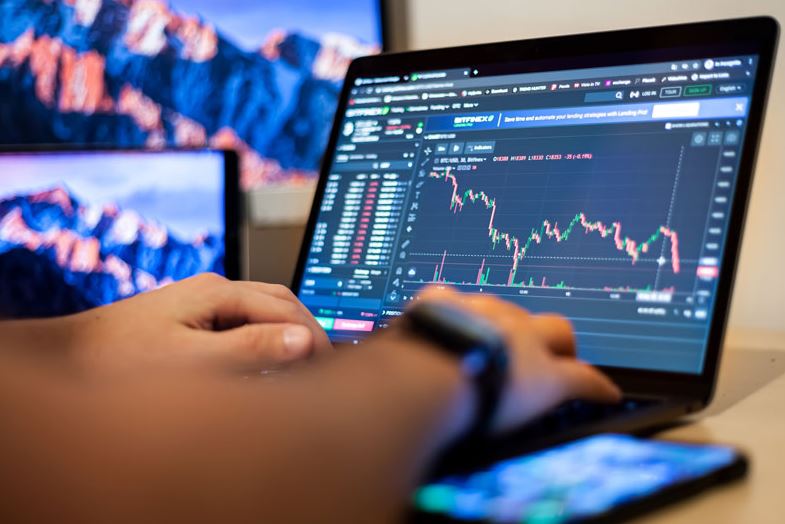 Forex trading is legal yet regulated in Kenya and there are a few local and international forex brokers licensed under the CMA.
Forex trading is legal yet regulated in Kenya and there are a few local and international forex brokers licensed under the CMA.
The presence of a regulatory authority means traders can rest assured they deal with a legitimate and trustworthy legal entity.
Also, local financial market watchdog ensures that all CMA regulated financial brokers who solicit traders from Kenya are not involved in fraudulent activities, like money laundry and do not charge hidden fees.
What you need to know before you start
Foreign Exchange is the world’s largest financial market according to International Bank for Settlements with around $4 trillion daily turnover. It offers lucrative profits and endless opportunities for big and retail investors.
Here are a few key steps for you to start retail foreign exchange trading from Kenya.
1. Learn the Fundamentals of currency trading
A good forex broker will provide you with plenty of basic and advanced learning materials about trading.
Learn the fundamentals of daytrading before you invest your hard earned money. Start by understanding the basic forex terminology:
* Forex Currency Pairs
* Exchange rates
* Spread, Margin, and Leverage
* Pips
* Bid/Ask prices
Lot sizes
2. Money management
Leverage plays a key role in any successful trading strategy. It maximizes your return-on-investment . At the same time, it multiplies your losses.
Therefore, assessing your risk profile before trading is important. Understand how much you can invest and how much can you afford to lose.
Learn to minimize risk exposure by understanding loss-aversion strategies and stop-loss orders.
3. Choose the right broker
There are many trusted sources of information, you can for example compare the most trusted forex brokers in Kenya here. Each legit broker comes with its trading platform like Metatrader 4 and transparent fees.
Some fx brokers have even their own proprietary platforms that usually run on your web browser and you don’t need to install any additional software.
Before you sign up, compare these features first:
* Licensing and regulation – we recommend to open an account with CMA licensed forex broker !
* Islamic Account availability
* MPESA deposit option is nice to have
* Minimum deposit requirement (remember some companies have zero deposit requirements)
* Spread (the lower the better)
* Financial Leverage – don’t fall for high leverage trick! Leverage up to 1:10 is enough if you are a beginner
* Available currency pairs
Online Education for new traders
4. Start with a Demo Account
Open a demo account with your chosen forex broker before you get the live account. Then, test the trading platform and various features available.
Once you get hands-on practice, open your forex account with the minimum initial deposit. Create your forex trading strategy and plan your first trade.
5. Manage risks
Learn the basics of trading risk management as early as possible. Fully utilize the available tools like limit-loss and stop-loss orders.
Conduct comprehensive research through basic and technical tools like trend analysis, line or bar charts, variance analysis, etc.
Use scalping, day trading, and swing trading strategies in the beginning. Once you are familiar with these, you can devise advanced trading strategies like interest parity and algorithm trading.
6. Minimum Capital Requirements
Foreign exchange is popular thanks to financial leverage . The minimum deposit requirements are different for each broker as well.
Initial deposit requirements range from as low as $5 to $500 for some forex companies. All of these brokers would offer leverage of up to 1:400 on forex trading with certain terms and conditions.
Therefore, capital investment will depend largely on a trader’s risk appetite and risk tolerance. In simple words, how much you can risk you want to take and how much can you tolerate.
7. Forex Market regulation in Kenya
The Capital Market Authority (CMA) is the regulator of forex brokers in Kenya. The Central Bank of Kenya also imposes regulations on foreign currency exchanges and banks.
Forex brokers are regulated and licensed under the Capital Market Act of 2000 in Kenya.
How to Avoid Forex Trading Scam in Kenya?
Remember, that CMA publishes the list of licensed brokers and financial institutions on its official website. You can also take a few other steps to avoid forex trading scams in Kenya.
* Confirm the licensing and listing of a forex broker on the CMA website.
* Verify the fund deposit and withdrawal methods of the broker.
* Start with established and international forex brokers first.
* Verify the web domain and security level of the broker.
* Keep an eye on spreads and profit margins offered by forex brokers. If they’re unrealistically high, it’s a red flag.
* Avoid investing money with signal-sellers, robotic traders, and pyramid schemes.
* Report suspicious forex brokers to relevant authorities.








